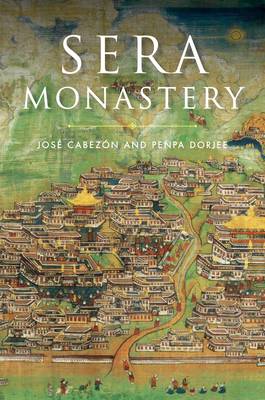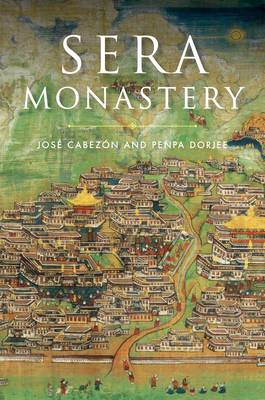
- Retrait gratuit dans votre magasin Club
- 7.000.000 titres dans notre catalogue
- Payer en toute sécurité
- Toujours un magasin près de chez vous
- Retrait gratuit dans votre magasin Club
- 7.000.0000 titres dans notre catalogue
- Payer en toute sécurité
- Toujours un magasin près de chez vous
Description
The definitive history of Sera Monastery, one of the great monastic universities of Tibet, from its founding to the present. Founded in 1419, Sera Monastery was one of the three densas, the great seats of learning of the Geluk school of Tibetan Buddhism. With over 9,000 monks in residence in 1959, it was the second largest monastery in the world. Throughout its history, Sera has produced some of Tibet's most important saints, scholars, and political leaders. The scholars José Cabezón and Penpa Dorjee begin Sera Monastery with the history of monasticism from the time of the Buddha through its early development in Tibet and then tell the 600-year story of Sera from its founding to the present. They recount how the monastery grew and evolved during the centuries, how it has fared under Chinese rule, and how it was transplanted in the Tibetan refugee camps of South India. We are introduced to some of Sera's most important lamas and hermits, as well as its curriculum, yearly calendar, the daily life of scholar monks, and the role Sera monks played in the political history of Tibet. Former Sera monks themselves, Cabezón and Dorjee demonstrate their firsthand knowledge of the monastery, its traditions, and daily life on every page. Scrupulously researched over decades, Sera Monastery is the most comprehensive history of a Tibetan monastery ever written in a Western language.
Spécifications
Parties prenantes
- Auteur(s) :
- Editeur:
Contenu
- Nombre de pages :
- 648
- Langue:
- Anglais
Caractéristiques
- EAN:
- 9781614296119
- Date de parution :
- 05-11-19
- Format:
- Livre relié
- Format numérique:
- Genaaid
- Dimensions :
- 155 mm x 231 mm
- Poids :
- 1065 g

Les avis
Nous publions uniquement les avis qui respectent les conditions requises. Consultez nos conditions pour les avis.






